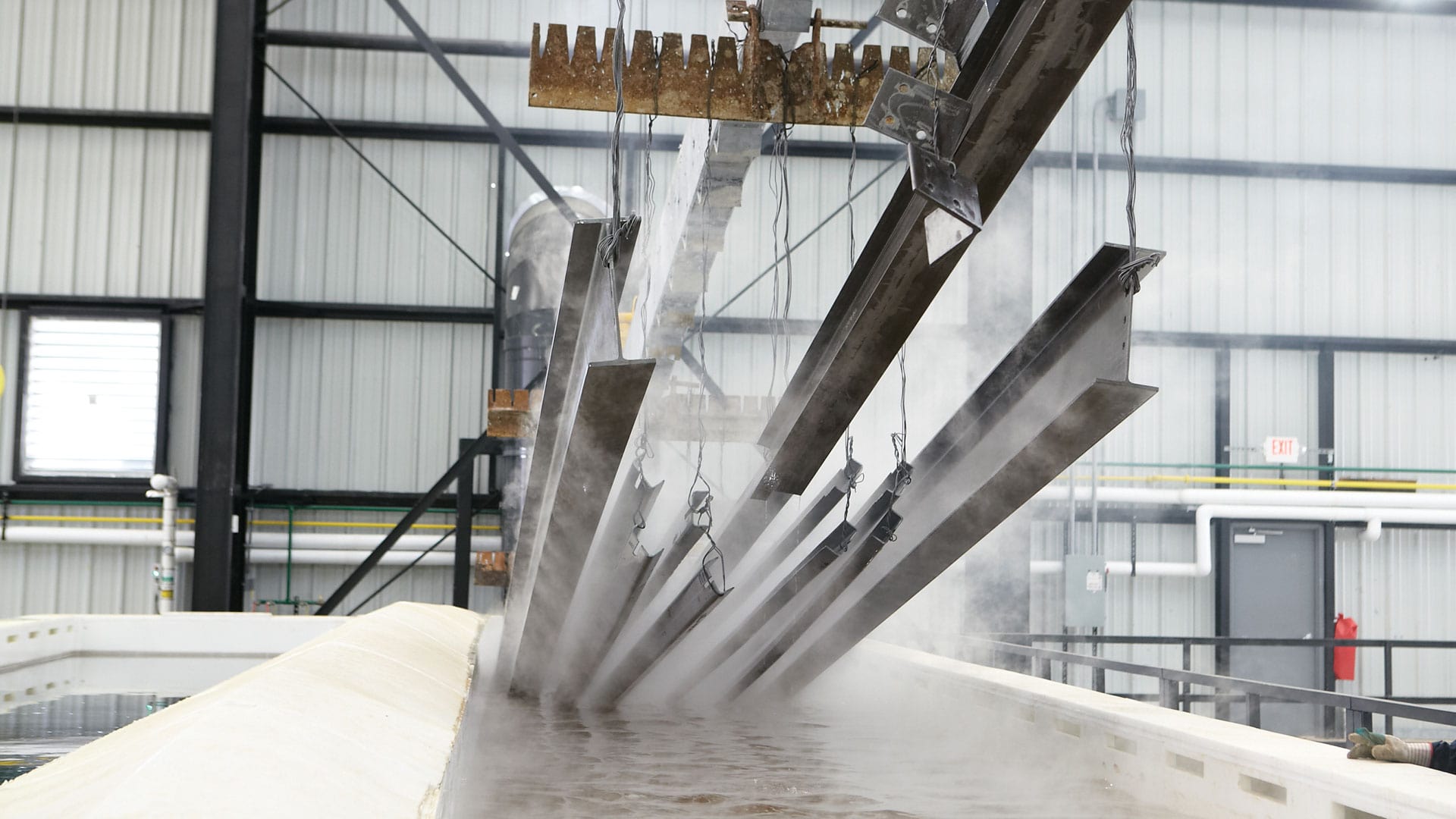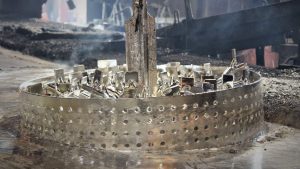Introduction:
Hot-dip galvanizing is a highly effective method for protecting steel and iron from corrosion and rust. By immersing metals in molten zinc, a strong, uniform protective layer forms, significantly increasing the lifespan of metal components. In this article, we’ll explore the process, benefits, standards, and applications of hot-dip galvanizing.
What is Hot-Dip Galvanizing?
Hot-dip galvanizing is a corrosion protection method that coats steel or iron with zinc. The zinc layer acts as a shield, preventing moisture and oxygen from reaching the base metal. Even if the coating is scratched, zinc provides sacrificial protection, which extends the service life of the component.
Hot-Dip Galvanizing Process Steps
1. Degreasing
Removes oils, grease, and dirt to ensure the zinc coating adheres properly.
2. Pickling
Immerses metal parts in hydrochloric or sulfuric acid to remove rust and oxides.
3. Fluxing
Applies ammonium or zinc chloride flux to prevent new oxidation during zinc immersion.
4. Immersion in Molten Zinc
Parts are dipped in a molten zinc bath (~450°C) to create a metallurgical bond.
5. Cooling and Inspection
Metal is cooled and inspected for coating thickness, uniformity, and quality.
Advantages of Hot-Dip Galvanizing
Long service life: Up to 50 years in normal environments.
Low maintenance: Requires minimal repair compared to paint or epoxy coatings.
Uniform coating: Fully covers corners and edges.
Sacrificial protection: Zinc protects steel even when scratched.
Applications of Hot-Dip Galvanizing
Hot-dip galvanizing is widely used in:
Construction: Beams, pipes, angles, bolts, nuts
Oil & Gas Industry: Metal structures, pipelines
Automotive Industry: Body panels and chassis
Urban Infrastructure: Lamp posts, guardrails, street signs
Electrical & Telecom: Transmission towers, antennas
Standards and Quality Control
ASTM A123: Standard for steel components
ISO 1461: International hot-dip galvanizing standard
BS EN ISO 14713: Corrosion protection guidelines
Conclusion
Hot-dip galvanizing is cost-effective, durable, and reliable. Following proper steps and standards ensures long-lasting protection for steel components, reducing maintenance costs and extending service life.
For high-quality hot-dip galvanizing services, contact merik to ensure the best protection for your metal structures.


